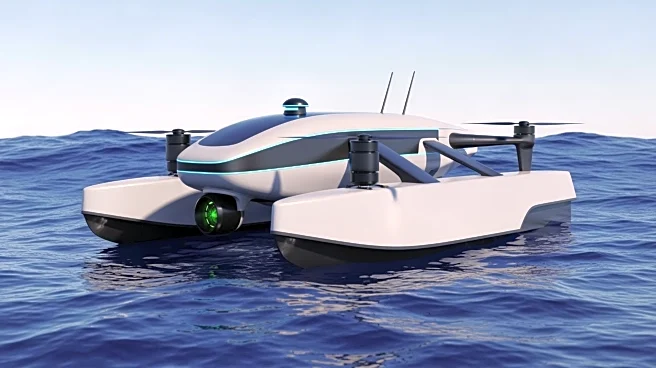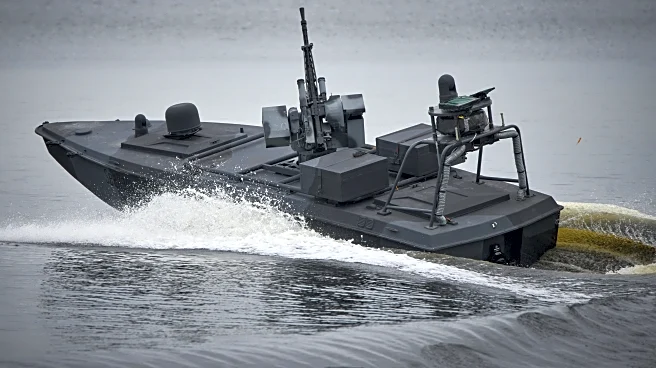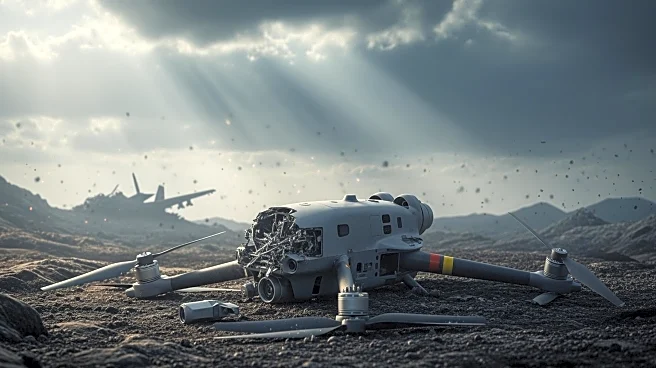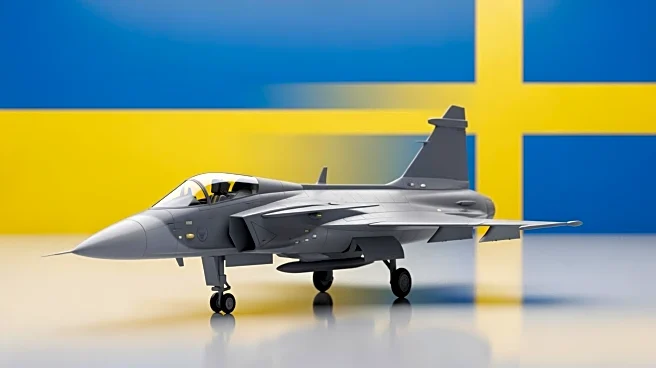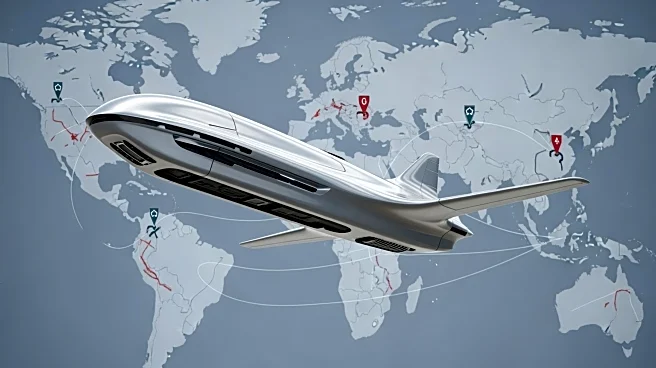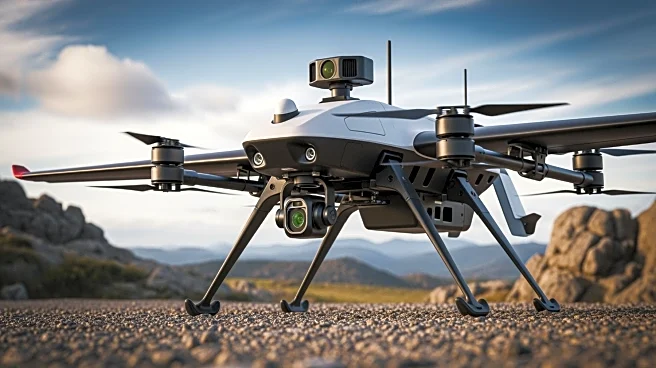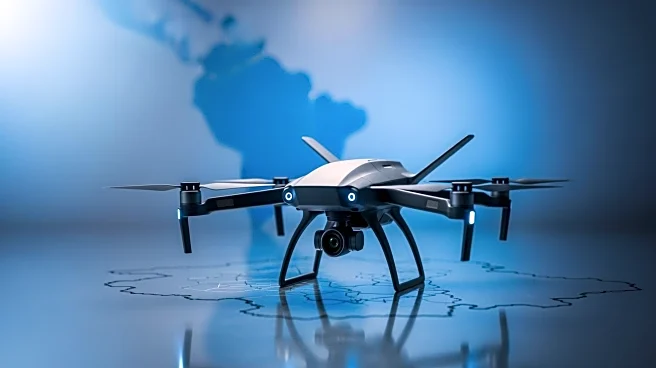What's Happening?
Ukraine's state security service has introduced an upgraded sea drone, known as the 'Sea Baby,' which can now operate throughout the Black Sea. The Security Service of Ukraine (SBU) has credited these
drones with forcing a strategic shift in Russian naval operations. The Sea Baby's range has been expanded to 1,500 kilometers, and it can carry up to 2,000 kilograms of payload. The drones feature AI-assisted targeting systems and can launch aerial attack drones. These advancements have allowed Ukraine to conduct successful attacks against Russian vessels, prompting the Russian navy to relocate its main base from Sevastopol to Novorossiysk. The Sea Baby program is funded by public donations and coordinated with Ukraine's military and political leadership.
Why It's Important?
The introduction of the upgraded Sea Baby drones marks a significant advancement in Ukraine's naval capabilities, allowing for more effective operations against Russian forces in the Black Sea. This development could alter the balance of power in the region, as Ukraine's ability to target Russian naval assets increases. The strategic relocation of Russia's naval base indicates the impact these drones have had on Russian operations. The use of AI and advanced targeting systems in these drones represents a shift towards more sophisticated warfare technology, potentially influencing future military strategies and defense policies.
What's Next?
Ukraine's continued development and deployment of advanced sea drones may lead to further strategic adjustments by Russian forces. The success of the Sea Baby program could encourage additional public and international support for Ukraine's military initiatives. As the drones become more integrated into Ukraine's defense strategy, there may be increased collaboration with international allies to enhance technological capabilities and operational effectiveness.
Beyond the Headlines
The evolution of the Sea Baby drones from single-use strike crafts to reusable platforms highlights the growing importance of unmanned systems in modern warfare. This shift could lead to broader discussions on the ethical and legal implications of using AI in military operations. Additionally, the reliance on public donations for funding military technology raises questions about the role of civilian contributions in national defense.
